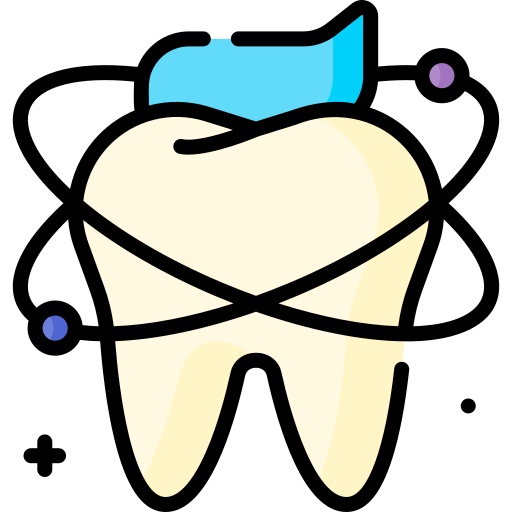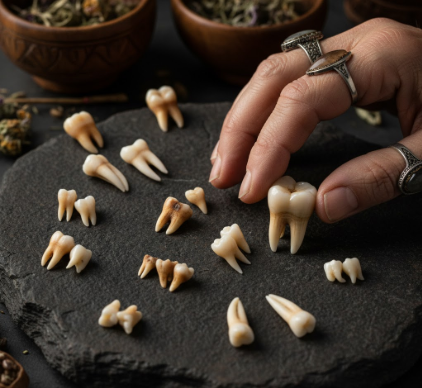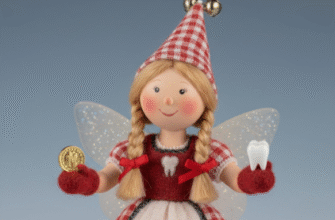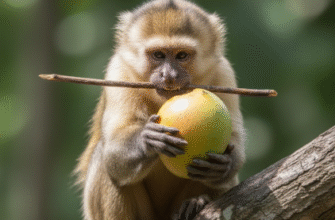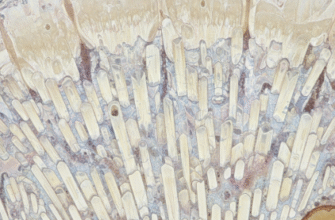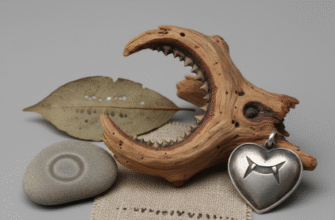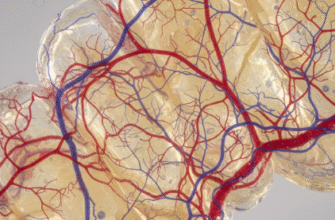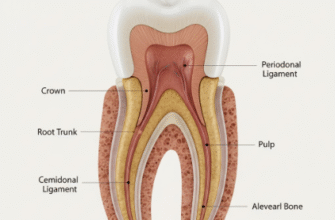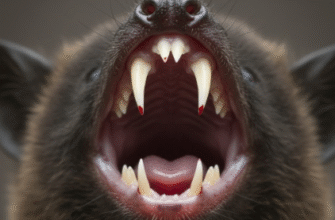Throughout history, humanity has sought to unravel the mysteries of fate, peering into everything from the stars above to the lines on our palms. Less commonly discussed, but equally woven into the rich tapestry of global folklore, is the practice of tooth divination, or odontomancy. Our teeth, those pearly gates to our speech and sustenance, were once considered potent indicators of personality, destiny, and even impending doom. Long before modern dentistry, the state, shape, and very loss of our teeth were scrutinized for hidden meanings, offering a fascinating glimpse into the anxieties and hopes of our ancestors.
The Silent Storytellers: Reading the Teeth You’re Born With
The set of teeth one was born with, or rather, the permanent set that emerged in childhood, was often seen as a blueprint, a fixed map of inherent traits and life paths. Unlike the fleeting expressions of the face, teeth were a more constant feature, and thus, to the folk diviner, a more reliable source of insight. From the gaps between them to their alignment, every detail was potentially significant, a silent whisper of one’s character or the fortunes that lay ahead.
The Gap of Good Fortune – Or Is It?
Perhaps one of the most widely recognized dental features in folklore is the gap between the front teeth, technically known as a diastema. In many Western cultures, particularly in parts of Europe and North America, this feature has long been associated with good luck, wealth, and a propensity for travel. Think of Chaucer’s ‘Wife of Bath,’ who was gap-toothed and well-traveled. However, the interpretation isn’t universally positive. In some African and Asian traditions, a gap tooth could signify a talkative nature, a tendency towards gossip, or even, more provocatively, a
highly amorous or lustful disposition. It’s a curious case where the same physical trait could herald fortune or a certain kind of notoriety, depending on where you were.
Crooked Paths and Pointed Personalities
Teeth that grew in crooked, overlapping, or were unusually sharp or prominent also carried their own symbolic weight. Crooked teeth, for instance, might be interpreted as a sign of a complex or ‘twisted’ personality, or perhaps a life journey filled with
unexpected turns and challenges. Conversely, some saw them as marks of individuality and strong will. Very sharp, prominent canines, sometimes called ‘wolf teeth,’ could suggest an aggressive or cunning nature, a person quick to ‘bite back’ metaphorically. The size of teeth mattered too; large, strong-looking teeth often implied vitality and a robust constitution, while very small or delicate teeth might hint at a more reserved or even frail individual.
Even the overall number of teeth, if it deviated from the norm, could be fodder for speculation. Having an extra tooth might be seen as a special mark, for good or ill, while being born with fewer than expected could be an omen of a shortened life or diminished fortune. The subtle nuances of one’s dental landscape were, in essence, a personal hieroglyphic chart waiting to be deciphered by those who knew the ancient language of tooth lore.
Transitions and Triumphs: The Saga of Lost Teeth
The loss of teeth, a universal human experience, is particularly rich in folkloric significance. From the shedding of baby teeth to the more alarming prospect of losing permanent ones, these moments of transition were often imbued with ritual and predictive meaning. The mouth, a site of such vital functions, experiencing a change like tooth loss, naturally sparked a desire to understand its deeper implications.
Baby Teeth: Tiny Tokens of What’s to Come
The shedding of deciduous teeth, or baby teeth, is a childhood milestone celebrated with various customs across the globe. The most famous in the Anglosphere is, of course, the Tooth Fairy, a benevolent figure who exchanges lost teeth for money or small gifts. But this is a relatively modern iteration. Older traditions involved specific ways of disposing of the tooth to ensure good luck, a strong replacement tooth, or even to predict aspects of the child’s future. For example, throwing the tooth onto the roof was common in many cultures, often accompanied by a wish for the new tooth to be as strong as a stone or as white as a mouse’s tooth.
Here are a few traditional ways baby teeth were handled and what they supposedly signified:
- Throwing a tooth skyward: Often done for upper teeth, hoping the new tooth would grow straight and strong towards the heavens.
- Throwing a tooth downwards or burying it: Typically for lower teeth, encouraging the new tooth to root firmly.
- Feeding it to an animal (like a mouse or rat): Based on the idea that the child’s new tooth would grow to be as strong and healthy as the animal’s.
- Swallowing the tooth: In some areas, this was believed to ensure the new tooth would grow in the same place.
- Burning the tooth: To prevent witches or evil spirits from using it to cast spells against the child.
The very first tooth a baby cut, and its position, was also an event watched with keen interest. If the upper teeth came in first, it might be seen as an unusual sign, sometimes linked to a shorter life or future difficulties, though this varied greatly by region. The pain of teething itself was sometimes attributed to mischievous sprites or teething fevers thought to be a kind of
spiritual trial.
The Ominous Dream: When Teeth Fall in Slumber
Perhaps the most pervasive and unsettling piece of tooth-related folklore is the dream of losing teeth. Across countless cultures and generations, dreaming that your teeth are falling out, crumbling, or being pulled is almost universally interpreted as a bad omen. It’s a dream that often evokes a visceral sense of anxiety and helplessness upon waking. Common interpretations link it to an
impending death in the family or of a close friend, financial loss, a loss of control or power in one’s life, or significant personal anxieties. The specifics might vary – a molar might mean an older relative, an incisor a younger one – but the overarching theme is one of loss and distress.
The potency of this dream symbol likely stems from the fundamental importance of teeth. They are essential for nourishment, crucial for speech (and thus communication and social standing), and a key component of our physical appearance and expressions of confidence. To dream of losing them taps into deep-seated fears about vulnerability, aging, and the loss of vitality or personal agency. Even in modern times, with advanced dental care, the dream of losing teeth retains its unsettling power, a testament to its ancient roots in our collective unconscious.
Beyond the Smile: Other Dental Divinations
Beyond the static appearance or loss of teeth, other dental phenomena also found their way into the diviner’s lexicon. A persistent toothache, especially one without an obvious cause, might not just be a physical ailment but a sign of something more profound. It could be interpreted as a warning, a punishment for some misdeed, or an indication that
someone was speaking ill of you. Similarly, teeth grinding (bruxism), particularly at night, was sometimes thought to be caused by evil spirits tormenting the sleeper or a sign of unresolved inner turmoil that might attract misfortune. Charms and folk remedies were often employed not just to cure the ache or stop the grinding, but to ward off the negative spiritual influences believed to be at play.
The mouth itself, housing the teeth, was often seen as a portal. Words, breath, and sustenance passed through it. Therefore, the condition of the teeth could reflect the ‘purity’ or ‘power’ of what emanated from or entered this portal. Clean, strong teeth might signify honest speech and good health, while decayed or problematic teeth could, by extension, imply deceit, ill will, or vulnerability to negative forces. These beliefs underscore how intimately our physical selves were once connected to the spiritual and moral realms in popular imagination.
It’s vital to remember that tooth divination, like other forms of folk fortune-telling, was rooted in observation and the human desire to find meaning and predictability in an often unpredictable world. These beliefs were part of a larger cultural system for understanding life, personality, and fate. While not scientific, they offer rich insights into the psychology and worldview of past societies. Such practices reflect their hopes, fears, and the way they interpreted the human body as a microcosm of the universe.
While modern science has demystified much about our dental health, the echoes of tooth divination linger in surprising ways. We still use phrases like ‘long in the tooth’ to mean old, or might unconsciously feel a twinge of unease after a dream of losing teeth, even if we consciously dismiss it. This enduring, albeit faded, connection to the folkloric meaning of our teeth speaks to a deep-seated human fascination with finding signs and symbols in ourselves and the world around us. The teeth, once oracles of destiny, remain powerful symbols of our vitality and our journey through life, even if we now primarily entrust their care to dentists rather than diviners.
